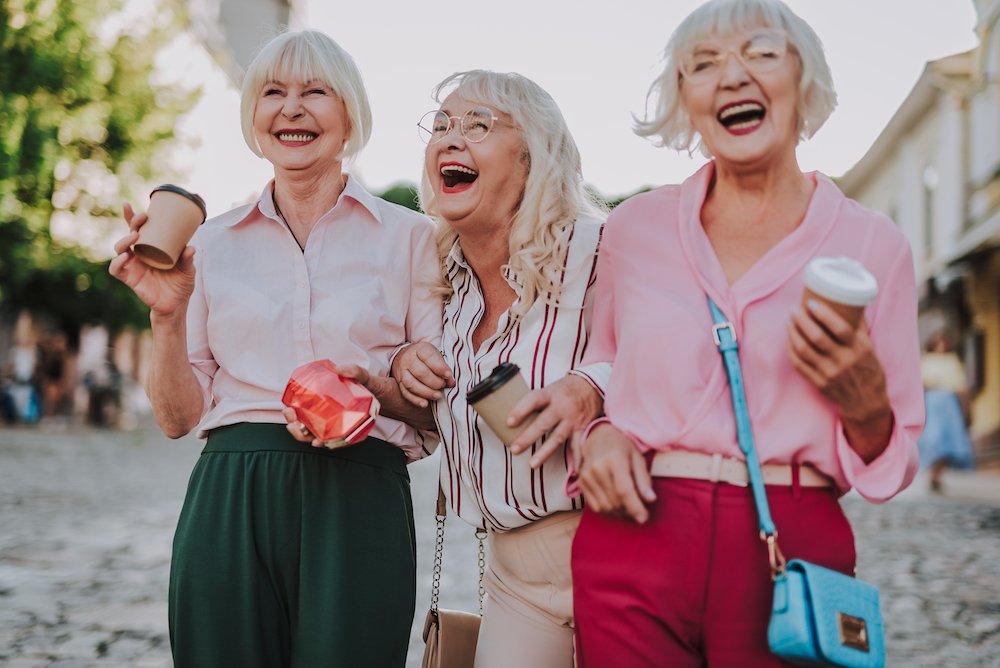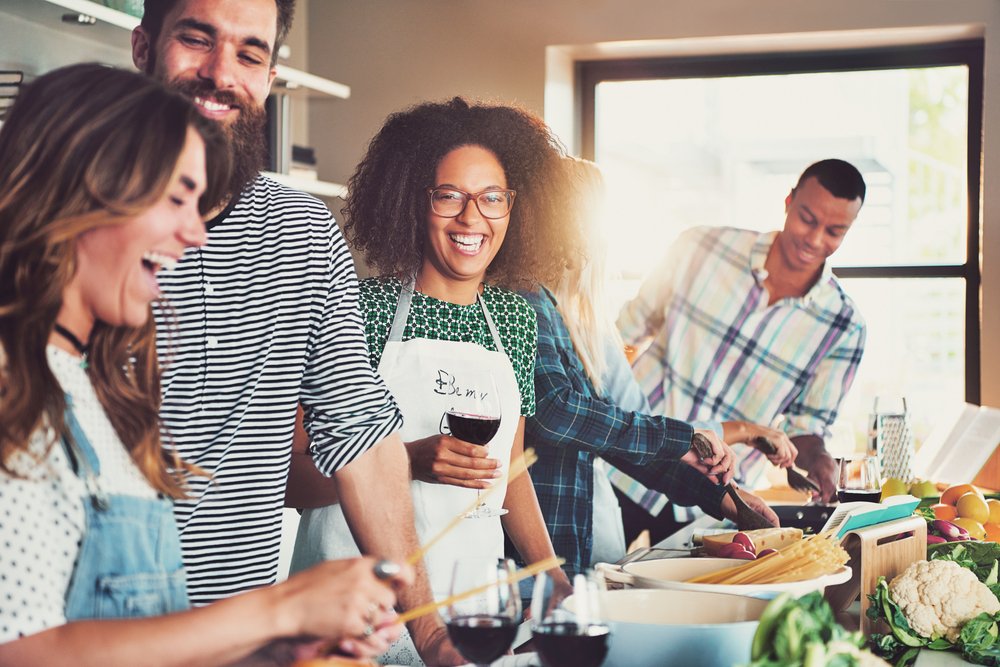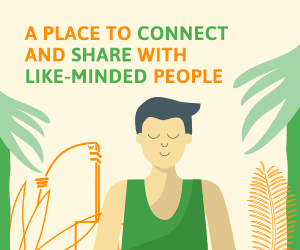Friendships are a powerful aid in maintaining both mental and physical health, as well as our happiness. Dee Marques explores why nurturing friends throughout our life is essential to our well-being – understand the science-backed power of friendship.
A few weeks ago I met a 97-year-old lady and asked her what it’s like to reach such an age. Her reply surprised me: “Well, my body isn’t what it used to be, but I've gotten used to that. What I can’t get used to is realising that all my friends have passed away.” This got me thinking about the power of friendship, and why friend relationships are so important to humans.
In fact, research shows that we’re designed to exist in groups. For early humans, isolation meant death, and social bonds increased the chances of protection, finding food and survival. In short, there was safety in numbers. Today, the power of friendship isn’t directly linked to survival, but it’s still an essential aspect of human existence.
The power of friendship: what happens when we feel lonely?
Humans are designed to thrive in the company of others, yet many people say they often experience loneliness. In fact, in the US, it’s estimated that 50 per cent of all Americans feel lonely. And in the UK, a study found that 9 million people (14 per cent of the population ) said they were lonely either always or most of the time. Furthermore, a UK YouGov poll from 2019 found that an incredible 22 per cent of millennials felt that they had no friends at all. 
The power of friendship: having close friends is important for mental health
The power of friendship is such that lacking meaningful social bonds can negatively affect our physical health as well as our mental health. In fact, loneliness causes an increase in stress hormones, which send white blood cells into overdrive and wreak havoc in the immune system.
Additionally, feeling isolated can put us at a higher risk of experiencing physical and mental health problems, ranging from depression to stroke or heart disease. And it’s even been suggested that loneliness-related sleep problems may be caused by an ingrained mechanism that dates back to our early ancestors, who didn’t feel safe when alone, so they had to keep their guard up and actually avoid falling asleep!
What are the benefits of powerful friendships?
So, not being able to experience the power of friendship can be harmful to our health. But what are the benefits of friendships?
In fact, the simple action of sharing thoughts, emotions, and activities with others reinforces positive feelings and makes good memories easier to remember. Sharing also reveals the authenticity in us, allowing us to know ourselves better and to find insights in our friends’ points of view. There are also health benefits involved: some studies found that seniors with large network of friends were more likely to outlive those without social support.
“The power of friendship is such that lacking meaningful social bonds can negatively affect our health. Feeling isolated can put us at a higher risk of experiencing physical and mental health problems.”
We are social beings, so friendships are key to happiness. There’s relief and strength in knowing that you don’t have to handle the ups and downs of life on your own. And it seems that what we do now with regards to friendship will be reflected later in life.
• JOIN US! Join the caring happiness.com community and make new friends •
Researchers at Harvard University followed up on a group of 700+ people as they went through different stages of their lives and consistently found that people who felt isolated experienced a decline in physical and mental health towards mid-life, whereas those who were happy with the quality of their relationships when they were 50 were healthier and happier in their 80s than those who didn’t.
Friends: quality vs. quantity
If the power of friendship is so great, does that mean that the more friends we have the better we’ll feel? Not necessarily. Isolation has never been as widespread as it is today, despite the popularity of social media. This is called the social media paradox.
Depression and anxiety are on the rise (especially among teenagers) and researchers have linked this to the increased use of social media, which often results in unrealistic comparisons with other people thinking their lives are better. This causes feelings of inadequacy, fear of rejection and unhappiness (and may help to account for those lack-of-friends stats in millennials mentioned earlier). 
Friendships are powerful but must be nurtured © shutterstock/Flamino Images
As plentiful as they might be, the reality is online friends aren’t enough, and real-world connections will always be more powerful. Indeed, although social media offers the possibility to stay in touch with friends and even to make new connections, it shouldn’t be seen as a replacement for real-life friendships. In fact, what really makes a difference is the depth of the connections we have with others. Some psychologists claim that just having one meaningful friendship can make a world of a difference.
Additionally, variety within friendships is also important. It’s natural to look for people who are 'like us', but it’s helpful to expand our circle of friends to include people with different backgrounds, interests, etc. Age-gap friendships are also beneficial. Each of them will bring something new into our lives, making for a richer social experience.
• CONNECT DEEPLY Make connections with like-minded and inspirational people •
Interestingly, the founder of a friendship site said we tend to replace half our close friends every seven years. As we go through different stages in life, our needs and interests change, so we’re more likely to be drawn to different types of people.
Nurturing friendships
Friendships have to be nurtured so they can grow healthily. Just like a plant, putting the seeds in alone is not enough. Ongoing care and attention are needed, so it’s crucial to make a conscious effort to invest time in our friendships. We can’t expect relationships to survive without investing in them.
So, always aim to be there for your friends (both new and old), be a mindful listener, prove they can trust you, praise them, write or tell them what their friendship means, and spend time doing things together. Of course, sometimes friendships break down for different reasons and it may be that at some point you need to think about when (and how) to end a friendship.
“Developing and nurturing meaningful social bonds can help you live a richer life. Take your time to invest in making new friends and nurturing existing ones.”
And yes, making and nurturing friendships gets harder as we get older. Remember how easy it was to make friends as a child? Try to approach relationships as you did when you were younger: being less self-conscious, more open, and generous with your time. Volunteering is an important and fun way of making friends as an adult, as you’re likely to find people who share your concerns and values.
Conclusion: the power of friendships
Developing and nurturing meaningful social bonds with others can help you live a richer life, both physically and emotionally. While it’s unfortunate to see how widespread loneliness and isolation are, there is an upside to it: there are many people out there who may be feeling as lonely and in need of support as you are.
So, why not do something about it? Take your time to invest in making new friends and nurture existing ones. You will all feel the benefits for years to come as the true power of friendships is real and proven by science! ●
Main image: shutterstock/Olena Yakobchuk
What does friendship mean to you? And what are the qualities of a best friend in your opinion? Have your say in our fourm.
happiness.com | The fine art of being: learn, practise, share
Are you a happiness.com member yet? Sign up for free now to enjoy:
■ our happiness magazine with practical life tips
■ share and support in our happiness forum
■ self-develop with free online classes in our Academy
Written by Dee Marques
 A social sciences graduate with a keen interest in languages, communication, and personal development strategies. Dee loves exercising, being out in nature, and discovering warm and sunny places where she can escape the winter.
A social sciences graduate with a keen interest in languages, communication, and personal development strategies. Dee loves exercising, being out in nature, and discovering warm and sunny places where she can escape the winter.




Join the conversation
You are posting as a guest. If you have an account, sign in now to post with your account.